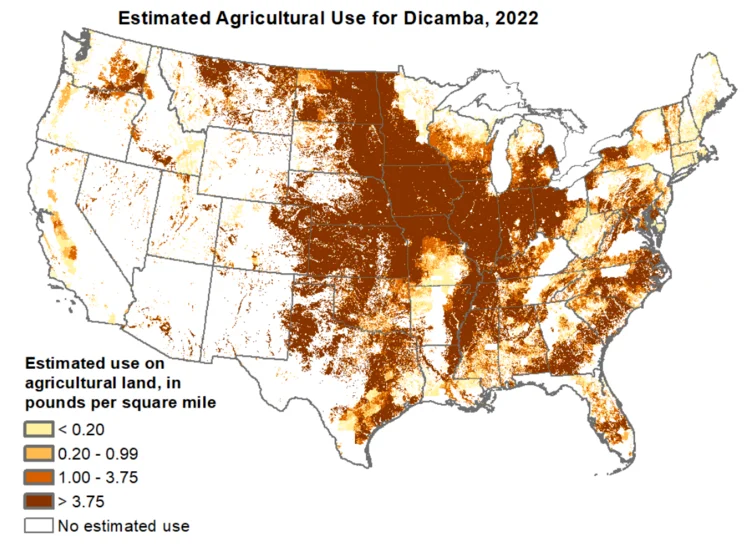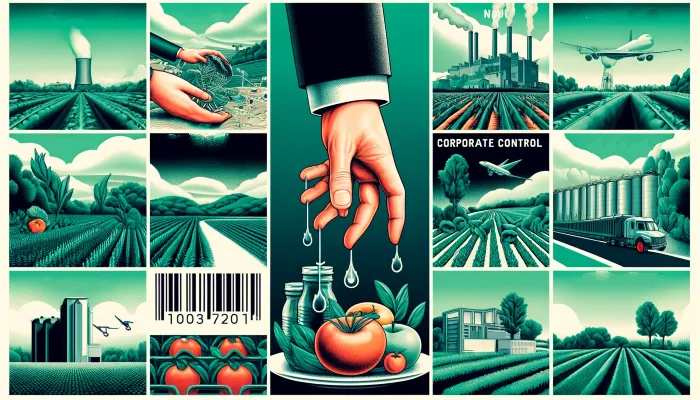In a groundbreaking ruling, the U.S. District Court of Arizona has declared that the Environmental Protection Agency (EPA) acted unlawfully in its approval of dicamba, a widely used herbicide, for application on emerged soybean and cotton crops. This decision effectively bans the use of dicamba for the current farming season, sending shockwaves through the agricultural sector.
Immediate Impact on Farmers and Agriculture
With planting season just around the corner, the court’s decision has left many in the agricultural community scrambling. BASF, in a formal statement, highlighted the timing’s critical nature: “Most soybean and cotton farmers have made seed and chemistry purchase decisions and, in some cases, are preparing to plant their 2024 crop in the coming weeks. As a result, this Order may threaten the livelihoods of soybean and cotton farmers who rely on over-the-top dicamba to control resistant weeds.”
The company further emphasized the wide-reaching impact, noting that “40 million U.S. dicamba-tolerant soybean and cotton acres ‘will be directly impacted’ by the court order.”

The Court’s Environmental Concerns
Despite acknowledging the effectiveness of dicamba as an herbicide, the court raised serious concerns about its environmental impact.
“Its toxicity is not limited to weeds; it kills broadleaf plants, generally, including desirable plants, bushes, and trees. Dicamba easily moves off-field due to wind drift during spraying and is volatile, meaning it evaporates into a gas during spraying if there is a temperature inversion or even hot weather can cause it to vaporize after spraying,” the court noted, highlighting the risks to biodiversity and non-target vegetation.
Industry and Regulatory Responses
The Agricultural Retailers Association (ARA) expressed its disagreement with the court’s ruling. Daren Coppock, president and CEO of ARA, stated, “It removes a determination that should be made by a science-based regulatory agency to a federal court, and the timing of the decision will be extremely disruptive to Ag retailers, distributors, manufacturers and farmers who made plans to use these products in 2024.”

Coppock further argued for the importance of regulatory over judicial decisions in such matters: “People have different opinions about whether OTT dicamba should be registered and used. But surely we can agree that we’re all better off – including consumers and the environment – if these decisions are made by regulators with scientific expertise during the registration review process rather than by the federal courts or activist litigators which lack that expertise.”
Advocacy Groups Claim Victory
The lawsuit, brought forth by a coalition including the Center for Food Safety, Center for Biological Diversity, Pesticide Action Network, and the National Family Farm Coalition, marks a significant win for environmental and sustainable farming advocates.
The Center for Biological Diversity celebrated the ruling as “a sweeping victory for family farmers and dozens of endangered plants and animals.”
More To Discover
Bayer’s Response and Future Steps
Bayer, now the owner of Monsanto and its XtendiMax dicamba product, responded to the court’s decision, stating: “…vacated the EPA’s registrations for over-the-top dicamba products based on procedural grounds, finding that the EPA ‘did not follow the FIFRA notice and comment provisions’ when it issued the registrations. We respectfully disagree with the ruling against the EPA’s registration decision, and we are assessing our next steps. We also await direction from the EPA on important actions it may take in response to the ruling. Our top priority is making sure growers have the approved products and support they need to safely and successfully grow their crops. We will keep our customers updated as we learn more from the EPA in advance of the 2024 growing season.”
As the agricultural sector and regulatory bodies digest this significant court ruling, the path forward remains uncertain. The EPA’s next steps, the potential for an appeal, and the broader implications for herbicide regulation and environmental protection are now at the forefront of discussions within and beyond the farming community.




















